News Blog
Latest News From Our Volunteers in Nepal
VOLUNTEER COMMUNITY CARE CLINICS IN NEPAL
Nepal remains one of the poorest countries in the world and has been plagued with political unrest and military conflict for the past decade. In 2015, a pair of major earthquakes devastated this small and fragile country.
Since 2008, the Acupuncture Relief Project has provided over 300,000 treatments to patients living in rural villages outside of Kathmandu Nepal. Our efforts include the treatment of patients living without access to modern medical care as well as people suffering from extreme poverty, substance abuse and social disfranchisement.
Common conditions include musculoskeletal pain, digestive pain, hypertension, diabetes, stroke rehabilitation, uterine prolapse, asthma, and recovery from tuberculosis treatment, typhoid fever, and surgery.
FEATURED CASE STUDIES
Rheumatoid Arthritis +

35-year-old female presents with multiple bilateral joint pain beginning 18 months previously and had received a diagnosis of…
Autism Spectrum Disorder +

20-year-old male patient presents with decreased mental capacity, which his mother states has been present since birth. He…
Spinal Trauma Sequelae with Osteoarthritis of Right Knee +
60-year-old female presents with spinal trauma sequela consisting of constant mid- to high grade pain and restricted flexion…
Chronic Vomiting +

80-year-old male presents with vomiting 20 minutes after each meal for 2 years. At the time of initial…
COMPASSION CONNECT : DOCUMENTARY SERIES

Episode 1
Rural Primary Care
In the aftermath of the 2015 Gorkha Earthquake, this episode explores the challenges of providing basic medical access for people living in rural areas.

Episode 2
Integrated Medicine
Acupuncture Relief Project tackles complicated medical cases through accurate assessment and the cooperation of both governmental and non-governmental agencies.

Episode 3
Working With The Government
Cooperation with the local government yields a unique opportunities to establish a new integrated medicine outpost in Bajra Barahi, Makawanpur, Nepal.

Episode 4
Case Management
Complicated medical cases require extraordinary effort. This episode follows 4-year-old Sushmita in her battle with tuberculosis.

Episode 5
Sober Recovery
Drug and alcohol abuse is a constant issue in both rural and urban areas of Nepal. Local customs and few treatment facilities prove difficult obstacles.

Episode 6
The Interpreters
Interpreters help make a critical connection between patients and practitioners. This episode explores the people that make our medicine possible and what it takes to do the job.

Episode 7
Future Doctors of Nepal
This episode looks at the people and the process of creating a new generation of Nepali rural health providers.

Compassion Connects
2012 Pilot Episode
In this 2011, documentary, Film-maker Tristan Stoch successfully illustrates many of the complexities of providing primary medical care in a third world environment.
From Our Blog
- Details
- By Terry Atchley
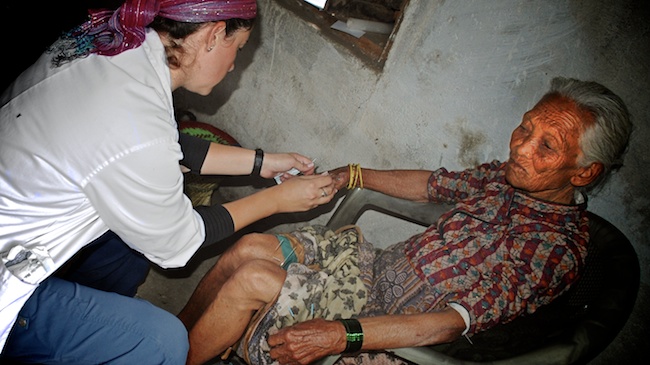
I have a clairvoyant friend who told me I would have a profound, potentially life-changing experience while I was in Nepal. I'm in a distant land helping a very rural, select group of people heal, naturally this will be profound, duh. Even so, I can't help but wonder about her prediction and it's implications. Will this experience be so changing I will be cognizant at the time it occurs or more subtle- something I'll reflect back on years from now, hindsight offering clarity I cannot comprehend in the moment? I don't know. What I do know is my anticipation waits unabashedly for the answer.
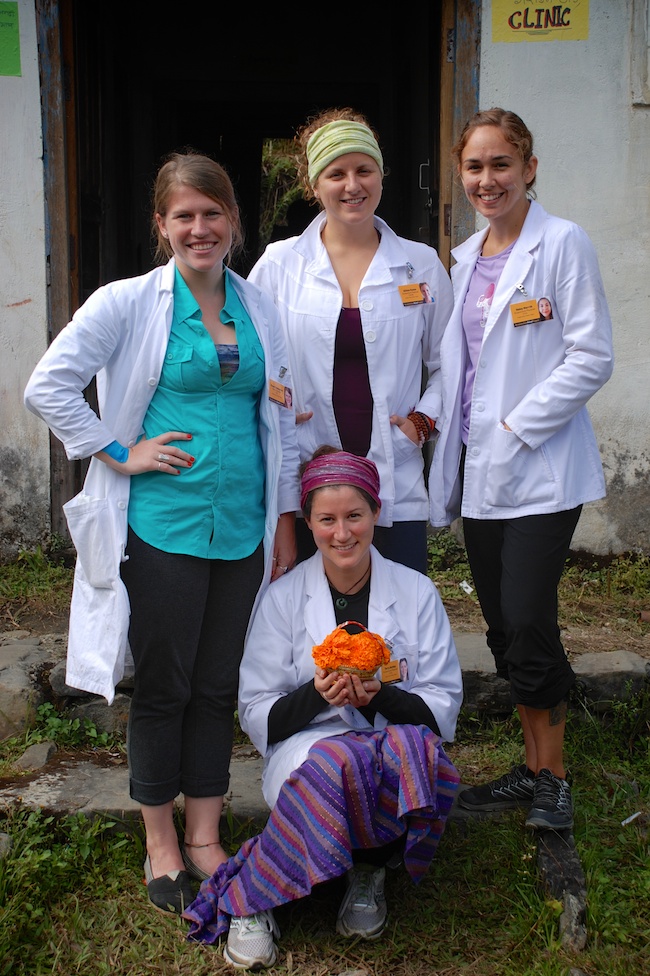
I have not spent much time with groups of females. So much feminine energy often overwhelms me and leaves me feeling shy and self-conscious. Did I fit in? Was I being judged on my abilities to act as a "normal girl" should act? These insecurities carried into adulthood and I've spend many hours working through what "normal" and femininity mean to me.
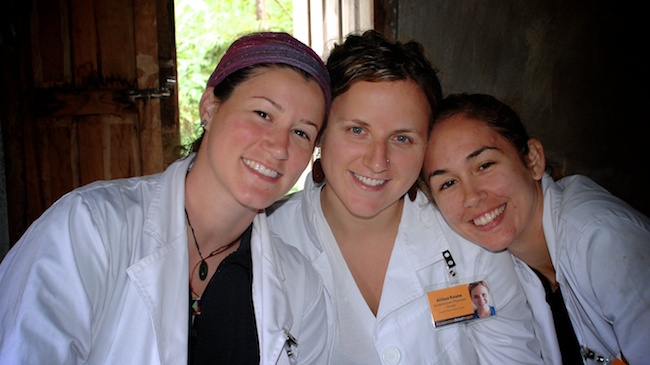
All the volunteers in this group are females ranging from 22 to 37 years old. We come from different backgrounds and share different stories. Since I've arrived I kept the ominous prediction in my head, always thinking the profound experience would be clinically related and maybe it will, but it could also be a more interpersonal one.
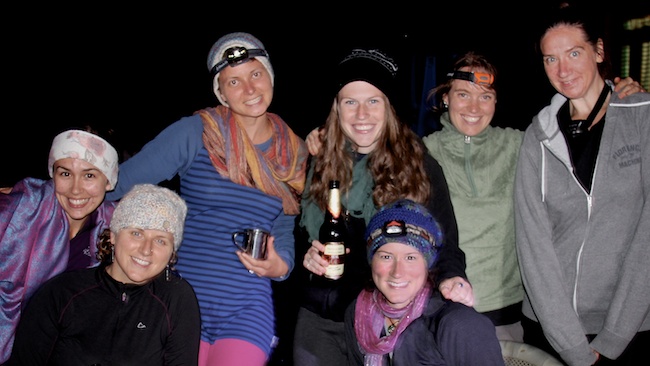
We have all been requested to write a blog expressing our authentic experience here, but I've struggled with this. My ability to process the goings-on veiled by overstimulation and fatigue. The days can be long and I am often riddled with self-doubt and insecurity about my capabilities to heal and help. Sometimes the only saving grace is the people I am sharing this experience with.
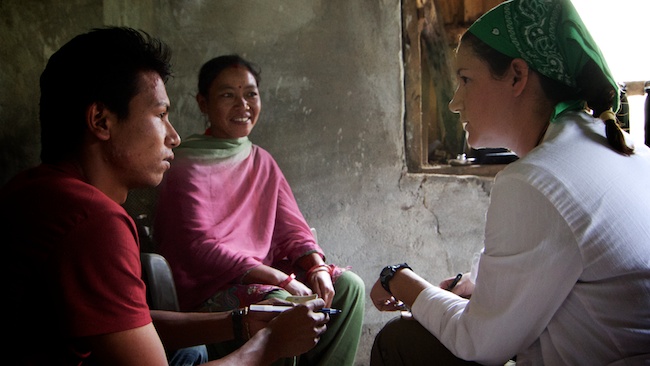
I have created a bond with the volunteers that even now, in it's very early stages, I can recognize as lifelong. I'm learning that my insecurities about everything aren't just something I alone have to suffer with; each of us are overwhelmed, unsure, emotional and confident all at the same time. In this adventure, completely out of my comfort zone, I am surrounded by a group of people that will support, help, comfort and hug me. The walls I keep up to protect my vulnerability haven't come crashing down, but I am letting these women see a part of me generally reserved only for those very close. We joke, cajole, offer tough love and make fun of each other daily. I laugh often and wholeheartedly. The relationships I am building with my colleagues is challenging to express in words, it is a feeling I have of knowing this is a moment to be cherished in it's fleetingness. This is a small window of my life that will be closed sooner than I am prepared for, it casts a melancholy air but reminds me to stay in the moment and be grateful.
Feel free to read other blog posts about my travels at:namasteacupuncture.blogspot.com
❤- Terry Atchley
- Details
- By Patty McDuffey
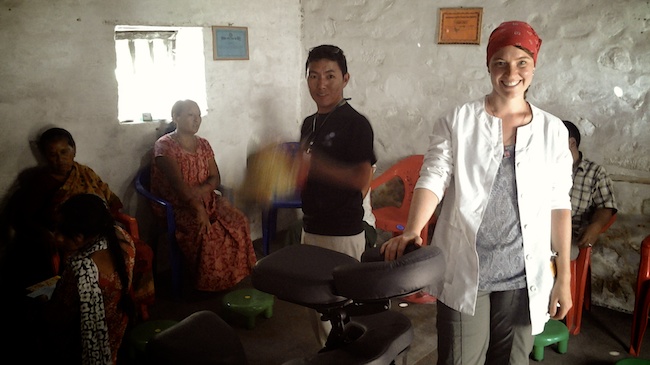
Tomorrow is the last day of our second week of clinic. My experience living and working in Nepal has seemed slow to evolve, but I realize is actually evolving very quickly. Last week was extremely difficult. The weather here in Bhimphedi was hot and sticky, the clinic was brand new, I was seeing more patients in one day than I've seen in a week and on top of all of that, I ended the week feeling sick and exhausted. I know from past experiences with travel that this is normally the point when I have a breakthrough. I had to remind myself of that, since it has been 12 years since I have lived abroad for a period of time. I've always been the type of person who when the going gets tough and I become stressed, I find a way to absorb that stress and "toughen up" in order to get through it. Unfortunately, this is usually when I get sick. This is exactly where I found myself last weekend...sick, tired and uninspired. When I was asked to be the team leader of the Bhimphedi satellite clinic, I knew in my heart that I was up for the challenge. I didn't know at the time that that challenge would have very little to do with the logistics of leading 2 other practitioners and keeping an organized clinic. It's turning out to have everything to do with learning how to thrive and follow my heart in an otherwise stressful situation.
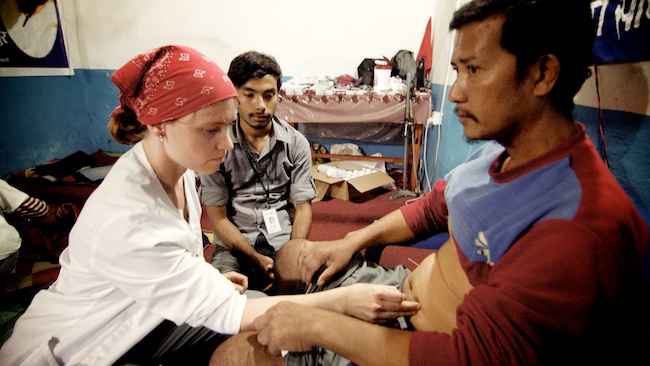
We all have coping mechanisms. Over the years I've become quite good at learning to exist in difficult environments and adjusting my body and mind so that each one was filed away into its predesignated spot in an attempt to keep my surrounding environment running smoothly. My heart didn't usually have much of a say. My surrounding environment was probably never as calm as I thought it was and I was certainly not in a state of inner calm. In recent years, as I've tried to incorporate my heart's desire into my coping mechanism, I often ended up appearing very vulnerable....a scary feeling for the girl from the east coast! But as I started to include my heart's needs into how I reacted, I started to feel a sense of freedom from this vulnerability. I feel as if the opportunity I'm being given as the team lead for the Bhimphedi clinic will expand my heart in a way that until now, I didn't truly realize needed to be expanded. Perhaps there is a way for me to exist, calmly and peacefully from the heart, within a stressful environment. Perhaps order and direction can co-exist, within myself, with a sense of vulnerability and an open heart. This is still a bit of a scary prospect for me and one that I will probably continue to stumble over many more times, but as I've begun to discover in recent years, it's also a freeing prospect. As I learn through Vipassana meditation, perhaps this is the key to responding rather than reacting. We respond with our hearts. We react with our minds.
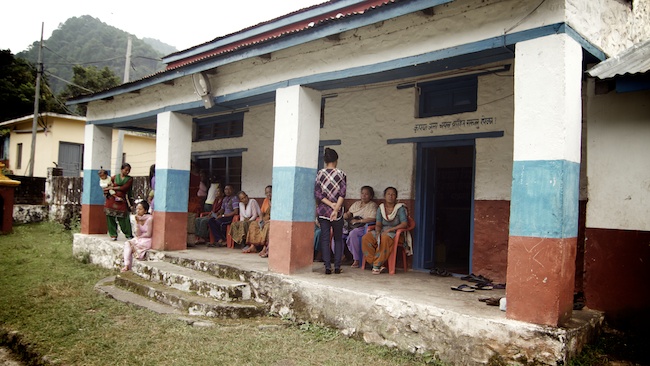
When viewed from the mind, everything we do here on a daily basis seems to be a lot of work...from showering to using the toilet to communicating. But when I start to relax and look at what or who is right in front of me, I realize it's not so much work...it's life. And when it's smiling back at me, I can't help but soften and smile back. I think I'm starting to see the magic of Nepal. ---Patty McDuffey
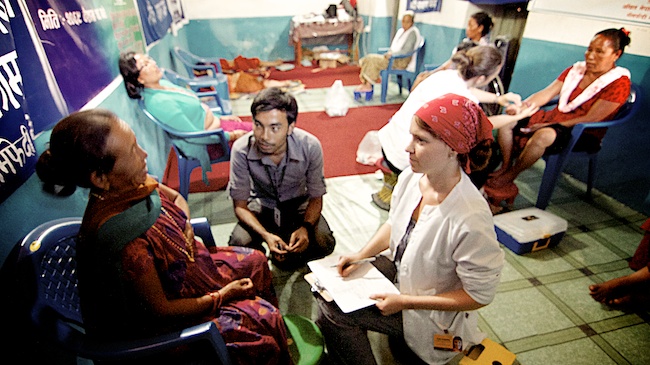
- Details
- By Anna Helms
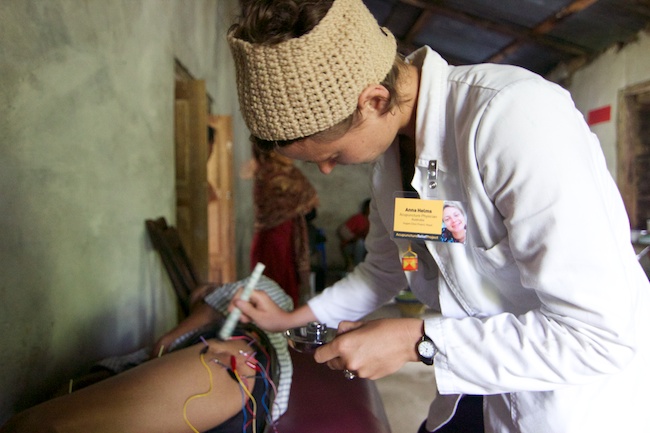
I feel my time in Nepal (only 12 days so far... crazy, feels like a year) has already greatly stretched, opened and expanded my view of culture, community, self and life in general. A perspective and growth I think and hope will stay with me forever. I feel like every moment is packed with SO much stimulus, it can feel like an overwhelming sense of raw emotions... bursting and bubbling... trying to make sense of, integrate and digest everything at once, before the next moment, equally as intense and stimulating arrives. There is just so much to take in and process... (A little alone time each day for me is highly needed).
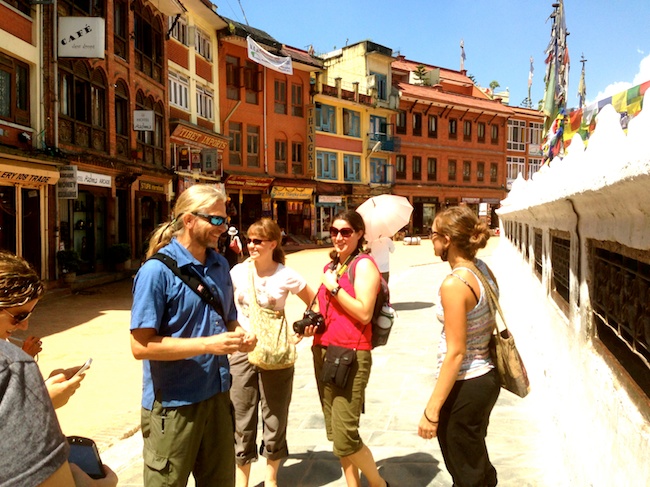
Being immersed in some Nepalese city life and culture in Kathmandu for a few days after arrival and introduction to our Acupuncture Relief Project team was a whirlwind of exciting events while we adjusted to our different time zones (America, Canada and Australia). On reflection some highlights include a trip on the back of Andrew’s (our team lead) motorbike from the airport to the earth house hotel. Goodbye Australia and hello Nepal... a complete cultural change!!! As the thick smog filters through my respiratory system, my eyes water from the smoke and speed of the bike, animals, pedestrians, bikes, motor vehicles and fuel trucks weave a path with many honks and near clashes, and I think back to my friend saying to me before I left that Nepal/India can often feel like you have landed in a completely different universe... yet the chaos to me feels so fluid and free and somehow I felt a sense of adrenaline, excitement and a great sense of LIFE!!!
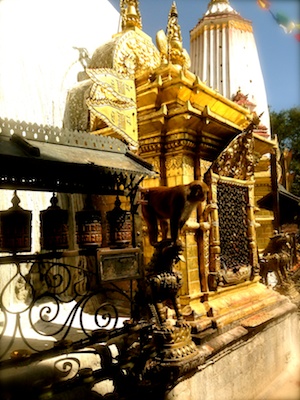
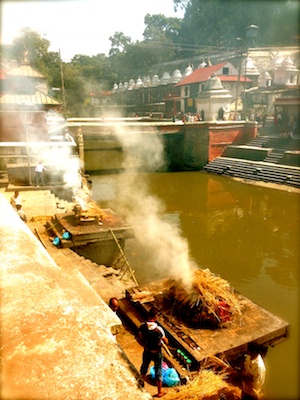
We had a very warm welcome and I felt extremely safe and at home. I was already beginning to sense that Nepal was a place of unpredictability and really keeps you on your toes... literally... those first couple of days we did a lot of walking... exploring and discovering the city and some of its treasures... lead partly by Andrew along with some of his Nepalese friends/connections... who are very interesting and inspiring people who generously shared their stories, art and knowledge of the city, temples and hot spots. (And by hot spots I don’t mean wi-fi... a concept, which has become foreign to us in Kogate and at its mention our ears prick up with anticipated attention).
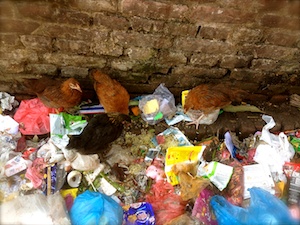
Some “hot spots” for me included the monkey temple ‘Swayambhunath’ where we had some great laughs watching many monkeys jumping and playing in a small water pool (remind me to show you a video of this) and a sacred site Pashupatinath where on one side of the river bodies are burned in funeral celebrations and on the other side there are temples for fertility. The way life and death are so connected here is very beautiful... A sense of impermanence and flow... Everything seems more out in the open... the rubbish being another example... instead of feeling disgusted by it I also see it gives another understanding that we use SO much unnecessary packaging and garbage in our society and here its just more ‘out there’. In Kogate all the rubbish we use we burn so it really gives you a more immediate idea of what and how much you bring/use/dispose of.
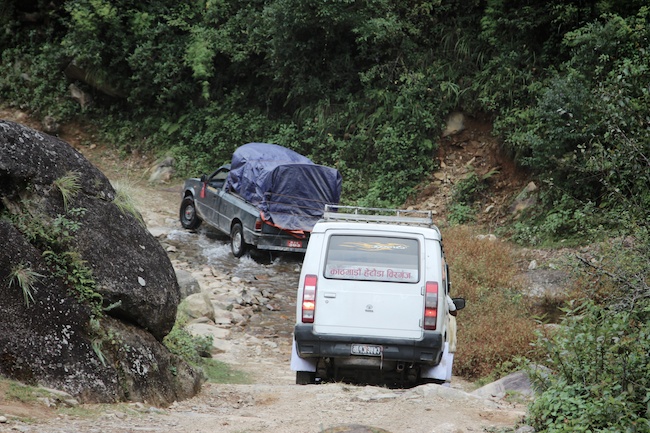
Our journey to Kogate was an adventurous funny, somewhat scary ride with all 7 of us packed into a jeep bobbing up and down with all the bumps, lots of screams of near close encounters with oncoming traffic around bends and the often sketch (Patty’s sketch scale rating) roads and lots of girly giggling (our poor driver ...a young Nepalese man who found enjoyment from telling us cars had just tumbled down the cliff the other day... totally NOT funny information while squeezed in the back of a jeep on that road!!!!).
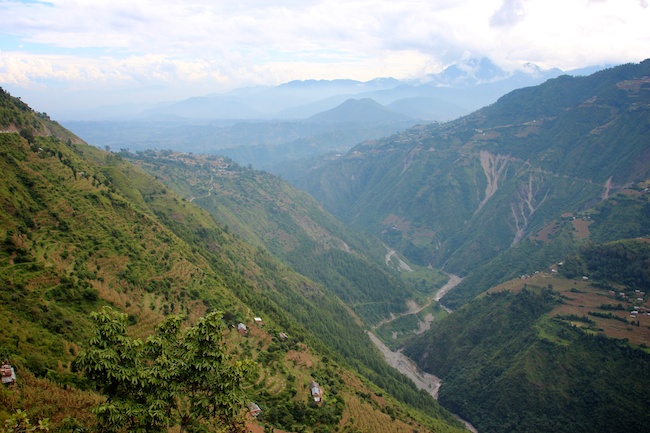
We arrived somewhat relived, very hungry and tired.... Only the next day could I fully appreciate the beauty of our new home and its mountainous surrounds. There is a little running creek which today we bathed in on our one day off ... it felt lovely and was refreshingly cool. We have explored some of the little trails around after our clinic days and the beauty is very overwhelming and breathtaking... as is the altitude and the steepness!!!
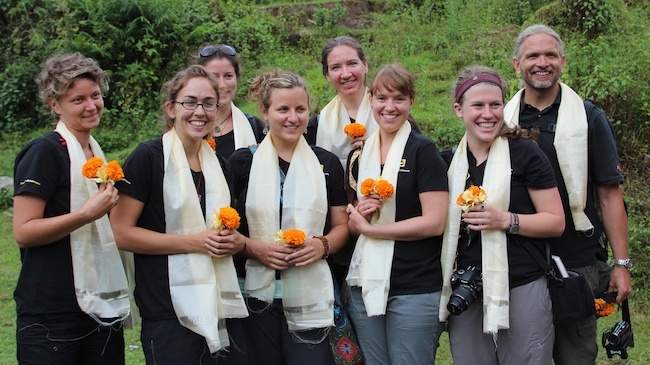
Setting up the clinic was exciting and the first week has been both challenging and rewarding. The Nepalese people are very sweet and welcoming, funny and grateful. I think I have treated and seen more people/conditions in the first week than a whole semester at college! From pregnant women, young children to people in their 80’s and all different social classes they arrive at our clinic late morning and just keep rolling in ... often I have around 10 family members in the room all having their input into a particular case and getting involved (at first can be very overwhelming, along with the children piling around the windows all watching, sniggering and giving you shy smiles).
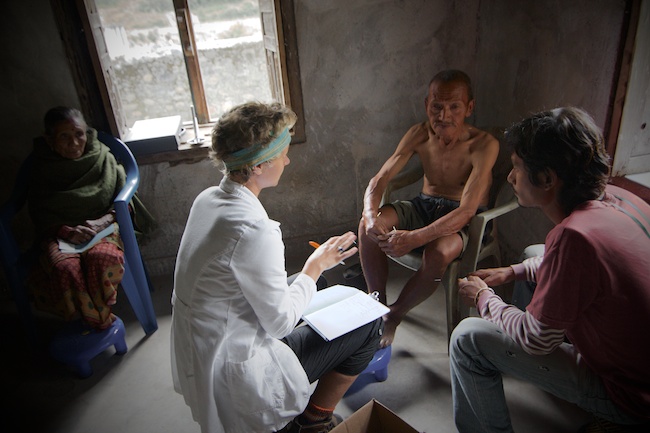
Being a “primary health worker” aka “famous white doctor” has been a big adjustment in my thinking and practicing mind and I have found working with new assessment tools and exams rather challenging yet I feel privileged to learn these new skills in practice and be able to help the people where is needed. Sometimes they don’t need acupuncture or herbs, they need a medical diagnosis or a referral or simply to be heard and listened to.
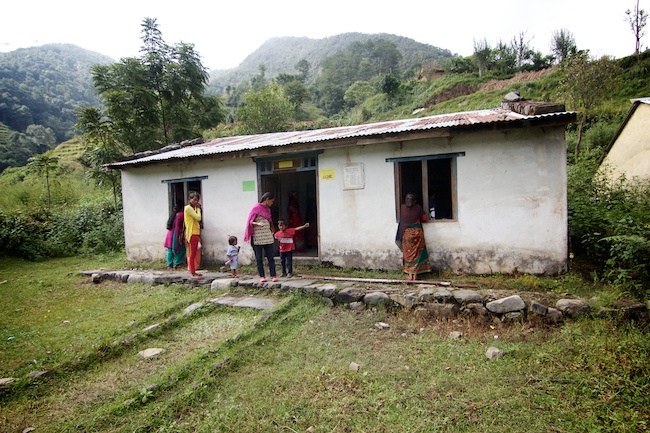
One of my patients I have seen everyday this week is an older man who suffered an ischemic stroke in late February and now is unable to speak. He comes in with his wife (a very caring beautiful lady) and is only able to sound “la la la” and is partially paralyzed on his right side. I have been treating him with acupuncture, using both electro and scalp acupuncture and also doing speech training with him. I sit in front of him (or Tessa, another volunteer who is helping out does) and we sound out the vowels getting him to watch us and try his best at copying our sounds. He finds this frustrating I think yet with the right encouragement he develops a big smile! This warms my heart and I feel so humbled by these people I have met who seem to have many health concerns yet are so open, happy and grateful. Many great qualities I will continue to aspire towards as my time here with Acupuncture Relief Project continues. - Anna Helms
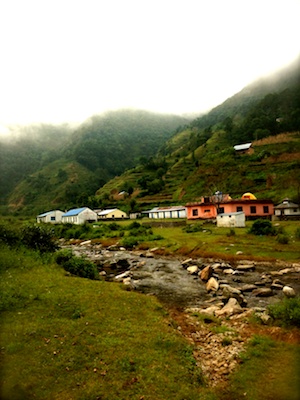
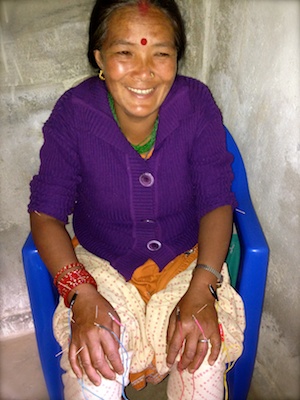
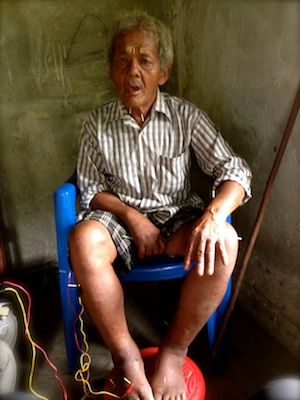
Our Mission
Acupuncture Relief Project, Inc. is a volunteer-based, 501(c)3 non-profit organization (Tax ID: 26-3335265). Our mission is to provide free medical support to those affected by poverty, conflict or disaster while offering an educationally meaningful experience to influence the professional development and personal growth of compassionate medical practitioners.
